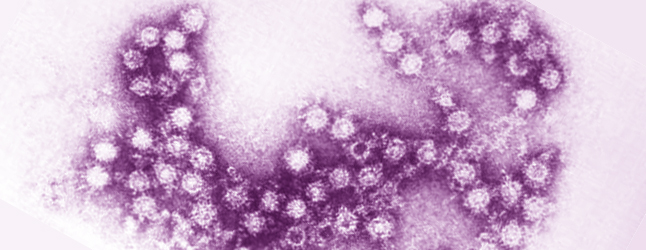
By David F. Rooney
Enterovirus D68 (EV-D68), the virus responsible for a rash of infections among young children in the United States, BC, Alberta and Ontario has appeared in one community within the Interior Health Authority.
Medical Health Officer Dr. Trevor Corneil confirmed the appearance of one case in a community within the IHA’s Thompson Cariboo Shuswap region. He would not name the community but said the existence of this case does not constitute a risk to public health, which would require naming the town. There is no cause for alarm, he said, adding that there are currently 8 known cases of the virus in this province.
According to the BC Centre for Disease Control “enteroviruses are very common viruses that cause many different types of illness, ranging from mild cold-like symptoms (e.g. runny nose, cough and sneezing) to fever and rash illness to more severe respiratory illness (e.g. difficulty breathing) and neurologic illness (e.g. encephalitis – an infection of the brain – and meningitis – an infection of the lining of the brain or spinal cord). However, most people who get infected by enteroviruses will not get sick at all.”
This particular enterovirus, which has been the subject of numerous news stories over the last month is, according to the BCCDC, “a specific type of non-polio enterovirus (polio is an enterovirus). It was first identified in California in 1962 but since then has only rarely been reported in the United States compared to other non-polio enteroviruses. However, as of mid-August 2014, children’s hospitals in several US states have reported an increase in hospitalizations for respiratory illness, some severe enough to require intensive care unit (ICU) admission, due to EV-D68. Cases have also been identified in Canada.”
Corneil said that while the frequent news reports about EV-D68 may seem to suggest that there is an enterovirus epidemic in North America that is not necessarily the case.
He said that labs that test sick children’s sputum and mucus samples screen them for a wide variety of viruses and other agents. EV-D68 and about 25 other related viruses are among those agents those screens can detect.
This means a couple of different things, Corneil said, “One is that there is a testing bias, meaning if you test for it you will find it, or, two, is there actually increased activity?”
What is doubtless of concern to parents who have been following news reports about EV-D68 infections in the US are news reports that some children have shown signs of “polio-like” paralysis. Two BC children sick from the virus are now being described as suffering from this. One of the two, a teenager, is still on a breathing machine a month after being in hospital. The other, a child between five and 10 years old, developed weakness in one arm that has not improved nearly a month after it developed.
Corneil suggested that describing these symptoms as “polio-like” is a little over the top. While some neurological effects have been described in some patients, that does not make them “polio-like.” Polio is a devastating and incurable illness that leaves its victims completely or partially paralyzed for life. No one yet knows if the partial paralysis ascribed to EV-D68 in some — but not all — patients is permanent or even if it is caused by the enterovirus itself.
Corneil said all parents should be aware of their children’s health and should pay attention if they present cold-like symptoms including: runny noses, coughing and sneezing. EV-D68 can cause more severe respiratory illness (e.g. difficulty breathing), sometimes including wheezing. Children with a history of asthma or wheezing are at higher risk for severe illness due to EV-D68 infection. Parents should seek medical assistance if their children show respiratory distress.
Of note, among early reports of severe EV-D68 illness in children in the United States, fever has not been a common symptom. It’s worth noting, too, that severe respiratory symptoms, such as difficulty breathing, may occur even in the absence of fever.
There are effective steps all families can take to reduce the spread of EV-D68 and other respiratory infections:
- Wash your hands often with soap and water for 20 seconds;
- Avoid touching eyes, nose and mouth with unwashed hands;
- Avoid kissing, hugging and sharing cups or utensils with people who are sick;
- Cover your mouth with your elbow when you cough or sneeze;
- Clean and disinfect frequently touched surfaces, such as toys and doorknobs, especially if someone is sick; and
- Stay at home from work or school when sick.
Parents of children with asthma should make sure their children regularly take their prescribed asthma medication (e.g. puffers or inhalers) and make sure their illness is well controlled. In the event that symptoms worsen, especially difficulty breathing, medical care should be sought immediately.



